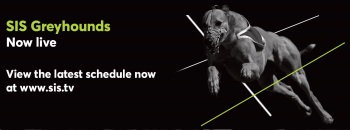1993 Hall Green vet Jean Jones receives a phone call from a hoaxer pretending to be an RSPCA inspector. He claims that Mrs Jones should not have allowed Kildare Slippy to contest the Grand National final as he was lame. The furious vet responds that the dog, who finished last, was sound when he went to traps but picked up an injury in a trouble strewn race.
1997 Lisglass Lass (Quare Rocket-Machern), one of the most successful middle distance bitches of her generation, dies from cancer aged seven. Her victories include the Irish Laurels, Waterford Guineas, Midland St Leger and Dundalk International.
1990 Trainer Tony Bullen is fined a third of the winner’s prize money after his £3,000 Bedfordshire Derby winner Seafield Skipper tests positive. The dog had returned at 40-1.
2000 Mildenhall trainer, stud keeper and lifelong Spurs fan Ted Liddle succumbs to cancer aged 67.
2011 Irish trainer P J Fahy declines to trial his Tyrur string following a row with the Wimbledon racing office. Fahy then cancels plans for a raid on the 2011 English Derby.
1993 An April Fools story in the Sporting Life claims that the ’93 St Leger will be staged as a handicap event.
1995 Portsmouth hosted a charity meeting in aid of Wessex Childrens Hospice and raised over £7,200. The event was organised by owner and TV presenter Fred Dineage. Among the guests were actress Diane Keane, footballer Matt Le Tissier, actor Buster Merryfield (Only Fools And Horses), comedian Mike Osman and former manager Laurie McMenemy.
1986 Archie Newhouse is unveiled as the next secretary of the NGRC. The 53 year old former greyhound editor of the Sporting Life and Greyhound Express will take over the top job when Fred Underhill retires in October 1988.
1975 Camira Flash, the most controversial Derby winner of all time, dies aged 13 at GRA’s Northaw Kennel. The dog’s skeleton is to be preserved for educational purposes.
1992 Arsonists pour petrol into the Kinsley judges box and set light to it, but the blaze is spotted and extinguished with only minor damage by promoter John Curran.
1968 Beaverwood Snow, one of the leading fancies for the Grand National is killed in a kennel fight two days before the first round.
1981 Bobcol (Westpark Mint-Black Katty) is the country’s top hurdler. In winning the Grand National, the Norah McEllistrim trained black completes a six timer including a new track record for White City’s 500mH course.
1957 Over 200 White City punters stormed the track following a race won by the subsequently disqualified (fighting) Whats Todo. Police were called when the stewards refused to void the race.
1996 In the same month that British racing managers vote to introduce middle seeding, Irish stewards vote to scrap seeding altogether. They argue that seeding is regularly abused. Among those who support the move is leading breeder Ger ‘Airmount’ Kiely who argues that seeding has “created false champions and weakened the breed.”
1971 Time Up Please sold at Shelbourne sales for 650 guineas. Four months later he finishes fourth in the Irish Derby Final. In October he lands the Irish St Leger. The following year, he lands the Dundalk International and then successfully defends his St Leger title.
2002 The GRA announce announce a £250,000 facelift for the Belle Vue restaurant to include new lighting, glass partitioning and carpets.
1959 Plans to revamp Burwood kennels bring about a debate between trainers over a proposed road, or lack of it, on the site. The debate is on the benefit or not of exercising dogs on the road. George Waterman states: “Roadwork is a mistake. Track greyhounds definitely do not need it.” Clare Orton believes a certain amount of roadwork is essential “It helps to form and toughen the feet and adds spring to the step.” Paddy McEllistrim also sees some benefit for long distance runners: “It is a useful aid to developing stamina, toughen the feet and keeps the nails short.” Stan Martin’s view is somewhere between the two, advising: “A little road work for dogs not racing regularly.”
1996 A Greyhound Star study into NGRC inquiries over the course of a full year, concludes that penalties are ‘generally’ consistent – if severe. The most severe fine was the £2,500 penalty imposed on Stainforth for failing to pay prize money on time. The highest fines for drug offences were £1,000, though one trainer was warned-off. Drug offences outnumbered ‘time finding’ enquiries by a proportion of 7:1. There were 30 different drugs detected (though no amphetamine or cocaine positives). Only two of the seven time-finding enquiries resulted in fines (£300, £150), though one permit trainer had his licence withdrawn. Including the Stainforth fine there were eight inquiries for track managements ranging from ‘running three unqualified dogs over a longer trip’ for which Henlow were severely reprimanded and fined £750, to the death of a dog of heat exhaustion in the Romford kennels for which there was a reprimand but no fine.
1993 Lord Kimball announces the first wave of payments to be made from the new Greyhound Racing Trust Fund. The chairman of the organisation that will become the BGRF. The Fund expect receipts of around £2m in its first year and the NGRC are to be given £130,000 to increase its random drug testing programme. Mark Glennerster, the NAGO representative on the BGRB intends to apply for £1,000 per month for sweepstakes at each of the 37 NGRC tracks.













